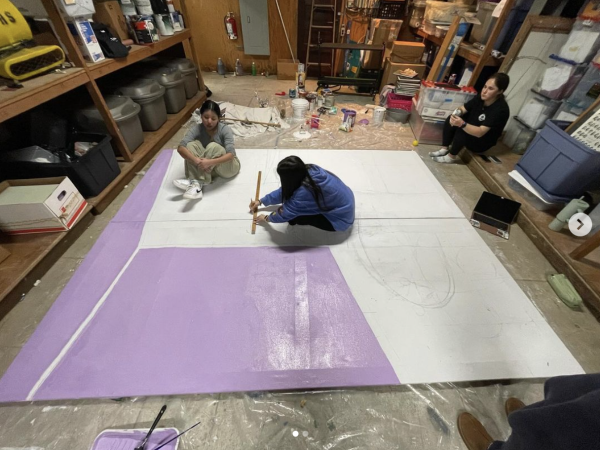Students stress over too much homework
Homework. A near-universal component of education, proposed as a way to ensure students review and retain information taught during school hours. Some consider it busy work, and some consider it essential to ensuring that students comprehend what they learn in class.
The Catalyst spoke with several students and faculty members about their opinions on the importance of homework and how it may impact the mental health of students.
Senior Kate Rose Keighran says that, last year, she spent around five hours on homework per night. She says that teachers need to realize that every student has homework in every class they take.
“They don’t understand the concept of all teachers giving that homework, so they think that their class is the only class if they give an hour to us… Then, they think that’s a sufficient amount, but every other teacher is giving an hour of homework as well so it adds up to seven hours of homework.”
Math Department Chair Jennifer Walton believes that, if a homework assignment is too much for a student to handle, teachers should be flexible in their willingness to adjust its length for the class.
“Usually, I listened to people; if they tell me it’s too long I cut it down because I tried to make it more applicable,” she said when asked if she has ever gotten complaints about homework being excessive.
Walton’s opinions demonstrate that, if a student ever thinks homework is too hard or too long, they should not be afraid to go to their teacher to tell them so.
Teachers, like Walton, want to be there and be flexible for their students. They recognize that students have outside of school commitments along with other assignments that they have to complete.
“I know that we do have certain guidelines in place [about how much homework students are given]. But, what I would like to know more about is the student experience of homework,” Associate Head of School, Curriculum and Instruction, Dr. Linda Kern said.
“I do hear that students are tired. I would say one of the things I really want to explore is given that we have a lot of students who might have other significant interests outside of school. I’d like to sit down and really put all of of our heads together around how to help everyone manage this time.”
Dr. Kern’s remarks reflect an openness to discussion with the student body about homework, its significance, and the amount of time that students can realistically devote to it while maintaining a healthy sleep schedule, pursuing extracurricular activities, and having good mental health.

Parker Daley is a senior at Notre Dame Belmont, has served as a Staff Writer and News Editor for The Catalyst, and is currently Editor in Chief. She is...










